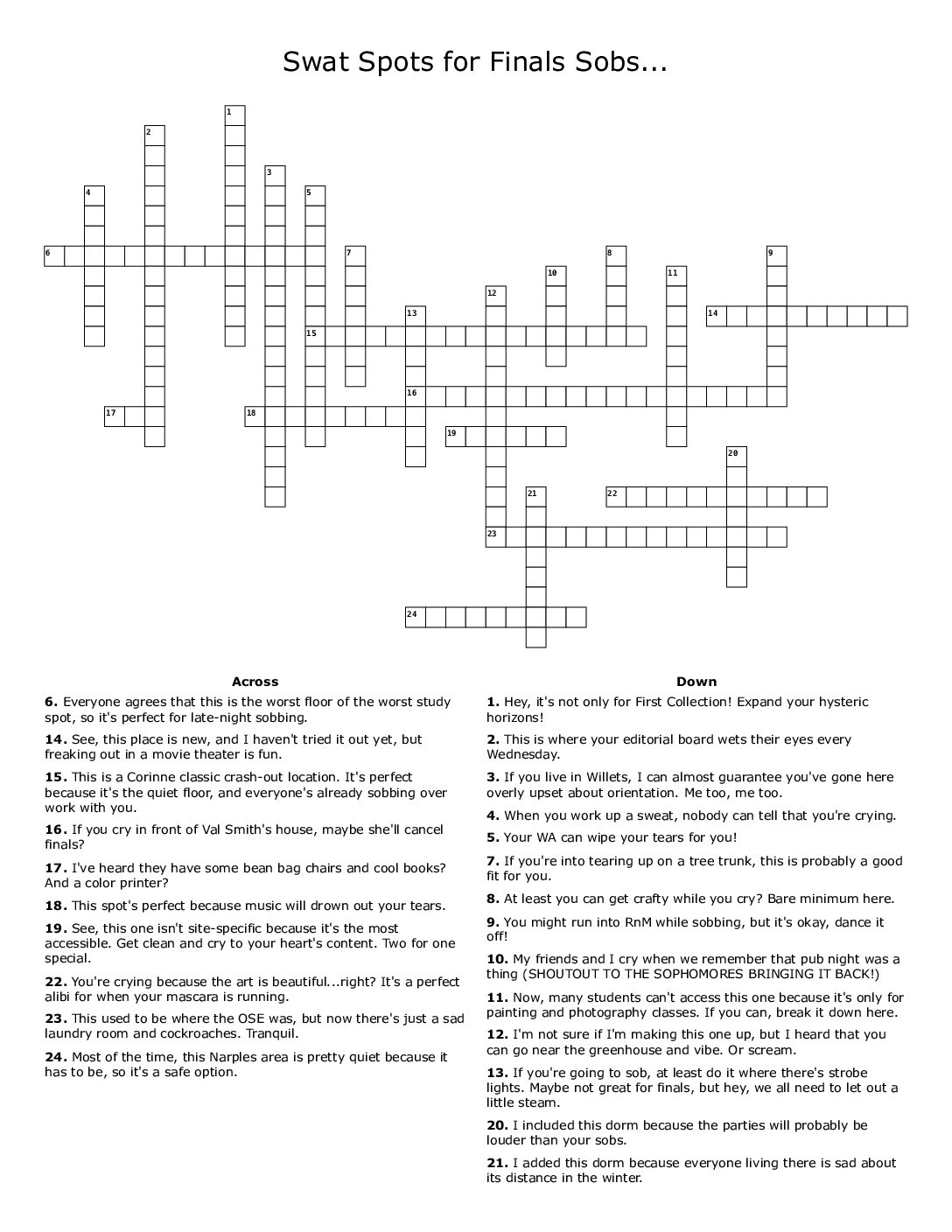We are almost there, Swatties. Only three more weeks before the end of finals, before the first years reflect on how the year has flown by and the sophomores celebrate becoming real upperclassmen. Only three more weeks before the juniors grow into seniors and the seniors prepare their tears and applause for graduation.
Yet, for those of us who aren’t seniors, these three more weeks are not the end. Rather, they represent a mere bookmark in our novel of adventures, and we have yet to complete even another chapter of our lives. Rather than new beginnings, the end of these three weeks will bring some time for us to escape the Swat bubble, to gain real life experience, and to regroup before we reopen our books again next fall.
For those of us who aren’t seniors, this summer will give us a chance to rediscover ourselves, beyond just classes, homework, and coffee obsessions. And, as a student who knows this routine all too well, I intend to take full advantage of this opportunity and I think it’s important to remind everyone else to do the same.
As a first year, Swarthmore has forced me early on to recognize my identity and inner-strength. Perhaps because of it’s academic intensity, I have learned that the world has so much more to offer than papers or class readings. Professors and mentors tell us this our whole lives; however, after I survived my first real D on a quiz and was able to seek out extracurricular opportunities despite the academic stigma at Swarthmore to work 24/7, I realized that grades do not define us.
It was the tears shed over the thought that “I may not be good enough for biology” and my heart racing at night as I thought “maybe I’m not academic enough to be a true Swattie” that forced me to accept: I am destined to make a difference in the world. Going to bed by midnight, doing less than average on a paper, or choosing to spend my Saturday volunteering instead of studying for Friday’s test will NOT change my dedication, enthusiasm, and passion for changing the world. The drive that led me to Swarthmore will be the same drive that will lead me to success, regardless of a stupid letter grade or a little time devoted to my interests rather than my 500-page class readings.
Of course, it’s so easy to get caught up in the academic intensity here at Swarthmore; after all, it’s everyone’s academic motivation that makes Swarthmore so great. But, as we use the end of the year to reflect, perhaps it’s time to expose that many students are exhausted from the extreme academic stigma at Swarthmore and the only ones who have the power to change that overpowering atmosphere are ourselves.
Of 100 Swatties I interviewed, 77 revealed feeling discouraged by the academic pressures and 68 wished they devoted more time to the social justice side of Swarthmore rather than the intellectual workload. But, if that’s what we want to devote our time to, why aren’t we doing it? How are professors going to realize we don’t want 20 hours of homework a night if the only way we choose to spend our time is doing homework? How are we going to have social justice events on campus if the attendance rates remain so low? How will we ever establish Swarthmore as a campus that fights for change if we are too busy locked away in the Science Center to put the theory we are learning into action?
My goal is not to lecture the entire student body on how to enjoy college or to act as if I am suddenly the “all-knowing freshman” who has figured out their entire life … far from it. Rather, my goal is to expose an issue on campus that has affected so many of us, yet that we have all felt powerless in changing. My goal is to demonstrate that no one is alone in feeling overworked or in wanting a little less intensity or even in feeling like the famous “admissions mistake.” But we can all come together in order to prevent this feeling in the future.
Finally, while it’s important to prepare for the future, it is also important to enjoy the present. Jesus Hernandez ’19 puts it best when he states, if Swarthmore has taught him anything it’s “how to fail.” But, also “to learn from your mistakes and to grow from them.” If we are all terrified to make mistakes and let go of our academics just a little, how can we ever truly grow?
This year has been a crazy journey of self-discovery and adventures, but I suppose it would have been silly to expect anything less. We are all so lucky to be a community with so much to learn from one another. David Ding ’16 shares that he is thankful for Swarthmore because “it taught him how to be hopeful for the world of tomorrow” and Elizabeth Beruman-Gonzalez ’19 shares how thankful she is “for getting to meet a variety of people.”
What am I thankful for? I’m thankful for the new experiences we will all share next fall when we reopen the novel that is our college experience and explore the changes that we can bring to create a more involved, happy, and fulfilling campus community—a community that maintains its academic intensity, but begins to embrace the outside world and civic engagement even more.















